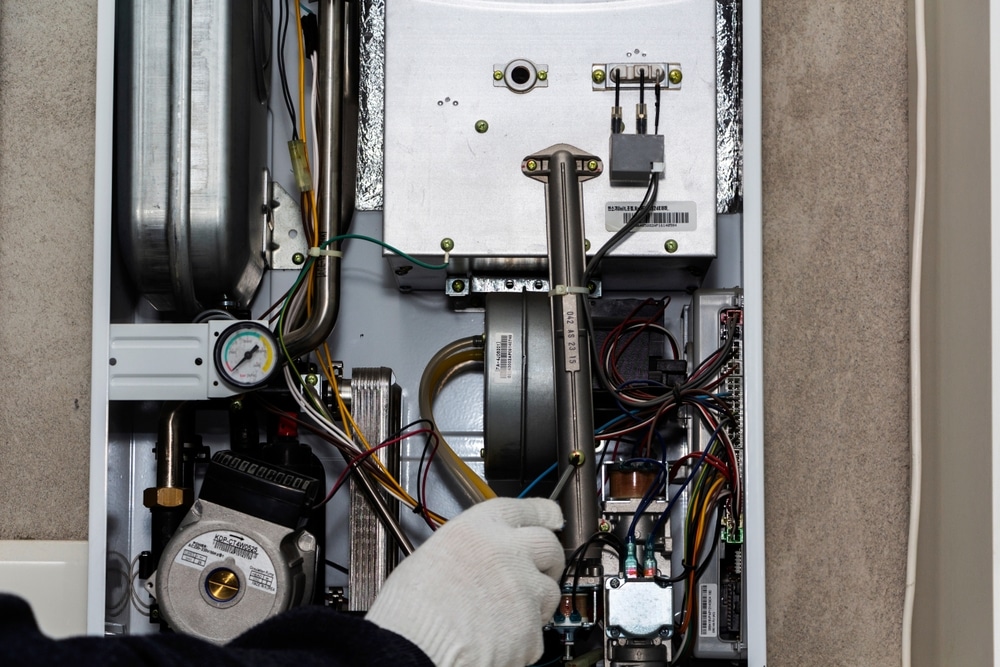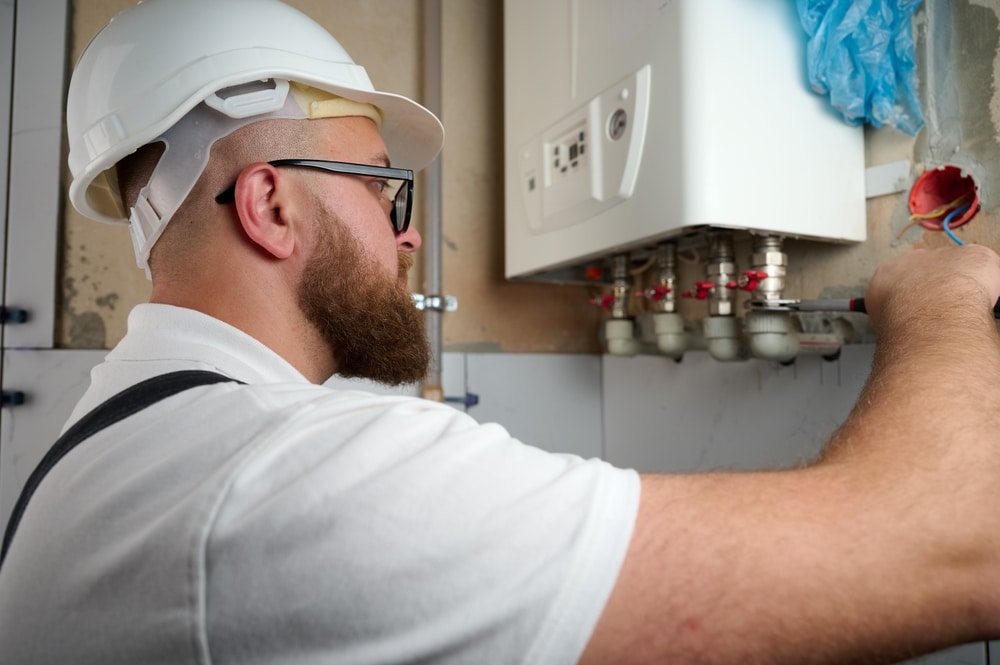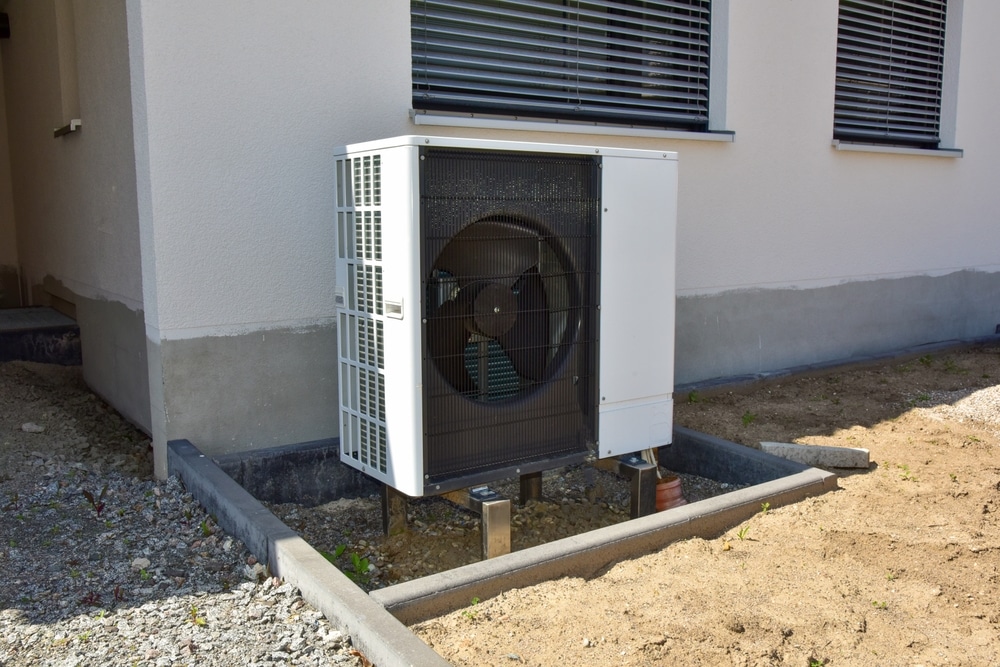
Most homes and businesses in Lexington, Kentucky are heated by gas or electricity. Each of these home furnace options has its pros and cons but at the end of the day, it’s important to pick the right option that brings your home the best comfort and energy efficiency.
GreenBox Home Services helps you compare factors such as performance, costs, and more to help you make the right choice for your home when it comes to a gas versus an electric furnace.
How Do Gas and Electric Furnaces Work?
While each of these furnaces differs in multiple areas, the main difference is how they work. Here is how these furnaces differ in operation:
Gas Furnaces
Gas furnaces generate heat by burning natural gas or propane. Once a pilot light or controlled flame ignites the unit’s gas burners, heat is generated through combustion. As the heat is being generated, it’ll rise to raise the temperature of the air inside the unit’s heat exchanger. Heated air is then distributed throughout the home by ductwork and vents.
Electric Furnaces
For electric furnaces, the air is warmed as it passes over electric coils and through other elements that drive electric resistance. The delivery of heated air remains the same as in a gas furnace, through ductwork and vents. Electric furnaces tend to be a simpler means of operation compared to gas furnaces.
Installation Costs
When it comes to the initial installation cost, new gas furnaces typically cost more. You can expect a new gas furnace to cost between $4,500 to $6,000, while electric furnaces cost around $2,000 to $4,000. But why such a difference? It comes down to their configurations. Gas furnaces require certain systems like gas lines for proper installation, while electric furnaces only require a simple electrical connection. For energy-efficient models, incentives and rebates are worth considering.
Operating Costs
Gas Furnace Operating Costs
Gas furnaces typically cost less to run in most areas of the country. Homeowners with a gas furnace recoup their money over time because of lower energy costs. Another thing to consider is gas prices may fluctuate based on the season and market changes.
Electric Furnace Operating Costs
A furnace that runs on electricity costs more during operation. Operating costs may even rise depending on location due to areas with high electricity costs. If your home has means to access natural gas, a gas furnace will probably make more sense.
Energy Efficiency
The energy efficiency of each type of unit does differ, but it also depends on the climate. Gas furnaces are much more efficient in colder climates as they require less energy to heat the same-sized space than electric units. And unlike gas furnaces, electric furnaces do use all of the energy they produce. Annual fuel utilization efficiency for gas furnaces can be as low as 57%, while electric furnaces are often between 95% and 100%. Make sure to pay attention to the efficiency rating when weighing gas vs electric furnace options.
Heating Performance and Climate Considerations
Gas Furnace Performance
A gas furnace’s performance is at a much higher level when operating in cold climates. And because gas furnaces use natural gas, the heat the unit produces is also much warmer.
Electric Furnace Performance
Electric furnaces have a slower heating process than gas furnaces, which can take longer to get the comfort you’re looking for. The performance output of an electric furnace is the most ideal under mild climates where heating demands are low.
Lifespan and Maintenance
Gas Furnace Maintenance and Longevity
Gas furnaces require regular maintenance such as filter changes and safety inspections for gas leaks. With regular maintenance, a gas furnace typically lasts 15 to 20 years.
Electric Furnace Maintenance and Longevity
With electric furnaces, maintenance isn’t as prevalent. This style of furnace doesn’t have as many moving parts, so maintenance typically happens every couple of years.
The longevity of electric furnaces is superior to a gas furnace, lasting between 20 and 30 years.
Environmental Impact
Since gas furnaces run on fossil fuels, your household’s carbon footprint is going to be substantially more than using an electric furnace. Electronic furnaces can be powered by renewable energy sources, making them more environmentally friendly. If environmental impact is a concern, take into account how your area resources its energy.
Safety Considerations
One of the bigger areas of consideration when discussing gas vs electric furnaces is safety. Owning a gas furnace comes with safety risks such as gas leaks and carbon monoxide. If the unit is properly maintained, installed, and vented correctly, they’re safe. Electric furnaces have fewer safety concerns but if they aren’t properly installed, electrical hazards can be an issue.
Recap
The debate of a gas vs electric furnace has multiple layers of discussion such as installation costs, efficiency, performance, and maintenance. One fact reigns true, gas furnaces are much more suited for homes in colder regions while electric furnaces are better in a mild climate.
Contact GreenBox today and consult with our team to determine the best option for your home.







